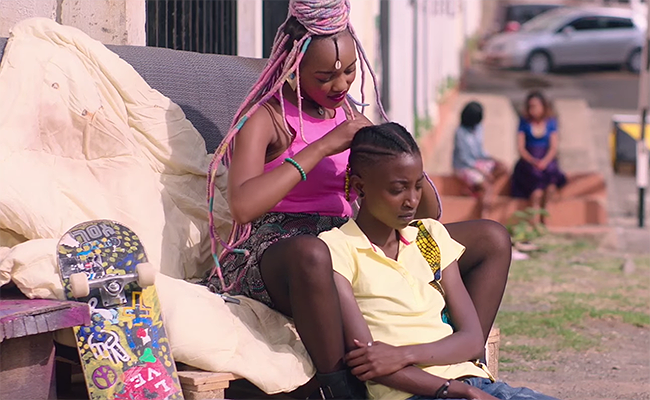Rafiki director is fighting to give film a permanent release in Kenya
The film was given a temporary seven-day release in Kenya last month where it smashed box office records.

Rafiki director Wanuri Kahiu has promised to keep fighting to give her film a permanent release in Kenya.
The film, a love story about two women, was banned in the country for promoting “gayism” but was screened at various festivals around the world where it earned critical acclaim.
However, Rafiki was given a temporary seven-day release in Kenya so it could qualify for the 2019 Oscars. During the limited release, Rafiki broke Kenyan box office records and, now it’s banned again, Kahiu is campaigning to give it a permanent release.
Speaking at a screening in London this month, the director said: “We went to court to say, can you please let it run for seven days so it can qualify to be an Oscars submission? That’s how we got the ban lifted, which was great.
“The judge made it super clear, she said: ‘I don’t think Kenyans will have an issue with this film.’ There’s this new East African word called ‘gayism’ and the conversation was about that, how this film is promoting and spreading ‘gayism’. The judge said, ‘No, you don’t catch it,’ and lifted the ban.”

She continued: “We’re going back into court to continue to fight for the larger freedom of expression case [to secure a permanent release]. We have a really young constitution but our constitution hasn’t been tested yet. Freedom [of] expression is one bit. The laws that ban the film are colonial laws, and we are asking for the laws to be updated so that they can reflect the constitution that we have. There’s nothing in the constitution that says we can’t make films like this.”
Kahiu, who doesn’t consider herself an activist, explained how she had to advocate for her film, saying: “I was pushed into a space where I had to advocate for the work I was creating.”
The director also spoke about the ban and claimed that it had tried to deny the existence of LGBT people and attempted to “erase them out of history”.
She said: “Those things were quite a concern to me. Also the idea of politicising love. If you’re a straight, white couple, it’s not political. Love is not political. Any other point that you start othering people, it becomes more and more political.
“I started very actively to reject the idea that Rafiki is political, I feel like it’s a love story, and I feel like it’s belittling when we start only referring to work about love as political, as though ‘you guys are not falling in love, you’re falling political! What you feel is not real, it’s a demonstration.'”
Kahiu hopes that the film will receive a nomination in the Best Foreign Language Film category at the 2019 Academy Awards.
